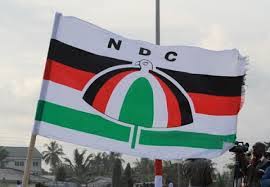Ghana’s main opposition party, National Democratic Congress (NDC), has accused the President Akufo-Addo-led government of mismanaging the West African nation’s power sector despite the quantum of resources bequeathed to them by the erstwhile John Mahama administration.
According to the opposition, the mismanagement of the power sector is what has resulted in the sector being saddled with huge indebtedness to the tune of GHS15 billion.
The party accused the Akufo-Addo administration of failing to credit the former government.
“Let me put on record that President Mahama comprehensively solved frequent power outages, locally termed as ‘dumsor’. It was generational problem but he took the bull by the horn and fixed the problem.”
At a public forum addressed by the former Deputy Minister for Power, John Jinapor dared the ruling government to turn off all the past government’s power plants and the gas processing plants and see if Ghana would not return to the era of power crisis.
According to him, the NPP government’s claim that the country has excess power capacity charges is nothing but a ruse to create another avenue to fleece the ordinary Ghanaian.
“Documents presented by the Electricity Company of Ghana (ECG), which is the sole off-taker to these Power Purchasing Agreements to Parliament, only ended up betraying the insincerity on the part of the Finance Minister. The facts point to a completely different picture,” he said.
Jinapor mentioned that typical of the NPP, whilst government officials were busy complaining about what they described as cost arising from excess capacity, a new company by name Stratcon Energy was being incorporated in 2017.
He said the company later received huge payments from revenues raised under the guise of paying for excess capacity.
The former Deputy Energy Minister was of the view that, though the current state of energy sector looks gloomy, should Ghanaians vote for the NDC, it would adopt prudent and pragmatic steps to revive the power sector governance culture.
“We will increase generation further to meet all suppressed demand, including giving incentives in heavy industries such as aluminum, iron and steel smelting,” he assured.
“We will continue to develop more sustainable power sources and encourage power conservation. We will ensure massive investment in the distribution sector to enhance capacity and also improve the technical and operational efficiency of utilities. To achieve this, we will work to reduce aggregate technical, commercial and collection losses, ensure a transparent and fair billing system, roll out smart metering systems across the country, eliminating bottlenecks associated with acquisition of meters and electricity connectivity for prospective customers,” he said.
Source: www.energynewsafrica.com
















